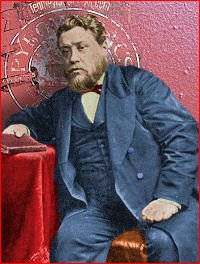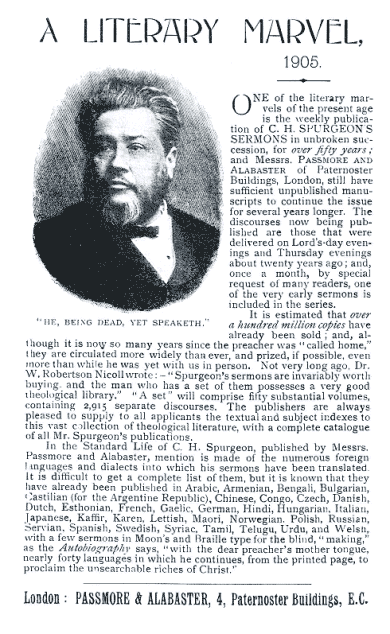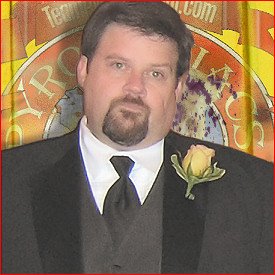"Hermeneutics" (plural in form, but used with both singular and plural verbs) is the art and science of Biblical interpretation. It's the set of rules, held consciously or not, that govern the way you read the Bible. You have a hermeneutical construct, I have a hermeneutical construct. It may be pretty darned good, it may be smelly-awful wretched, but you and I have one.
In my case, doubtless there was symbiosis, but mostly it was the former. I was in a cult called Religious Science, or the Science of Mind. I won't honor it with a link. I was New Age before New Age was cool. Back then we called it "New Thought," though it was barely either. (If you've ever sung "Let There Be Peace On Earth," you've sung a song cherished by that cult.)
It was your standard panentheistic Christian heresy, very like Christian Science except we weren't so negative on seeing doctors. Fundamentally, Religious Science taught that God is in all things, and expresses Itself as and through all things. Therefore, we are all expressions of God, and all have within ourselves the Christ-consciousness. "Christ" is the principle of god-consciousness, the I AM, within everyone. Our goal in life was to harmonize our minds with God, and thus to manifest truth, love, joy, stuff.
Dizzy yet?
Now, like most American cults, Religious Science wants to get on the Jesus-bandwagon by mouthing great platitudes about Jesus, how He was a great prophet, a great teacher, a great mystic, the most perfect manifestation of God-consciousness to date. But Jesus was no different than we, and we can all live the same life.
Stay with me, I am going somewhere with this.
The Religious Scientist runs into the problem that Jesus did not say much that sounded like any of that.
And that's where hermeneutics comes in. See, the problem is that Christians have misunderstood and misrepresented Jesus all this time. They took His words too literally and shallowly, when really they had a deeper, spiritual meaning. When He said to pray, "Our Father," He was saying that all without distinction are God's children.
So what about Hell, sin, salvation? No problem; Hell is just the experience of being at seeming disharmony with the One Mind; sin are thoughts out of harmony with the One Mind; salvation is just reaffirming and manifesting your union with the Godhead. See?
Now, the tale of my conversion, and of why I am still a Christian, is a much longer yarn than I will untangle here, except to focus on one aspect: how the Holy Spirit used hermeneutics to convert and save me.
I learned to read the Bible the Religious Science way from my pre-teen years. I looked for (and found) the "deeper meaning" that those idiot Christians and Jesus-Freaks kept stubbornly missing. It was a mindset, on the level of the reflexive.
But I did keep running into things that He said that jarred even my firm grid. It created a slowly growing tension: on the one hand, we thought Jesus was the greatest Teacher and Prophet and Mystic who ever lived; on the other, He sure expressed Himself poorly sometimes! But never mind; we were always there to "help" Him.
The single greatest snag was John 14:6 -- "Jesus said to him, 'I am the way, and the truth, and the life. No one comes to the Father except through me.'"
Sure sounds as if Jesus was saying what we Religious Scientists all denied: that no relationship with God is possible without a personal relationship with the person, the man, God incarnate, Jesus Christ.
But that isn't what we thought he meant. It couldn't be. It would destroy the whole foundation and superstructure. Here is how Ernest Holmes, founder of that cult, explains Jesus' words: "We cannot come unto the Father Which art in Heaven except through our own nature." So, what Jesus really meant was the precise opposite of what He seemed to be saying.
That worked fine for me, for awhile.
But over the period of many months, the Spirit of God did a work on me, convicting me of sin, exposing to me my actual distance from actual God, my God-un-likeness, the multilevel trainwreck that was me.
When I combined the realizations that I basically had found a religion that told me what I wanted to hear, and that I myself wasn't much better than a drooling idiot in the ways that mattered, it shook me to my foundations -- and I started looking at Jesus anew. And I prayed, that God would show me the way to Himself, even if it meant that I had to become a Jesus Freak. (That was the worst thing I could think of at the time.) What did I have to do?
And again loomed John 14:6, giving me Jesus' answer to my question.
This was the great Teacher, the great manifestation of God, Jesus, clearly laying out the only way I could come to God. But what did He mean? Did He mean that I was my own way to God (with Religious Science)? Or did He mean that I needed to believe in and know Him, Jesus, personally (with the Jesus Freaks)?
I had no idea, but at that point my very life was hinging on a hermeneutical question.

Here's the line of thinking that the Spirit of God used to deliver me from the deceptive maze of mystical subjectivism.
I took the premise that Jesus was the greatest Teacher, and assumed that a good teacher is a good communicator. He says what he means; his words convey his meaning. He speaks to be understood by his audience.
So then I simply posed this question question to myself: "If Jesus had meant to say that each of us is, within himself, his own way to God, could He have said it more clearly?" To put it differently, do these words best express that thought? The candid, inescapable answer was an immediate No. In fact, if that had been what Jesus had meant to say, He could hardly have phrased it more poorly... in which case He wasn't much of a teacher at all, let alone the greatest ever.
Then I asked myself this: "If Jesus had meant to say that He Himself personally is the way, the truth, and the life, and that no one can have a relationship with God apart from relating to Jesus Himself, could He have said that more clearly?" I was forced to admit that, in fact, that thought is exactly what these words most naturally express. (Later I was to learn that the Greek original underscores this very point all the more emphatically.)
That was a turning-point. I had to face the fact that Jesus did not believe what I believe. Jesus did not think God could be known as I thought He could be known.
And that, in turn, threw the question to the decisive fork in the road: who is more credible? Jesus, or me?
Had you said "Hermeneutics" to me at the time, I might have responded, "Herma-who?" Had you further said "Grammatico-historical exegesis," I couldn't even have managed that much. But that is precisely what was going on.
Now it's well over thirty years later, I've taken classes in Hermeneutics on the master's and doctoral level, read books and articles, written on the subject, fleshed out and used an array of principles of interpretation. But still that single method, that simple question (along with its implications), has resolved more knotty issues for me than any other. It's why I'm an inerrantist. It's why I'm a Calvinist. It is at the root of my core convictions. In fact, at bottom, in the hand of God it is why I am a Christian.
As I've fleshed it out, it is simply a formulation of Hebrews 1:1-2a. The Bible is God's unfolding Word, and it is God's Word to us. He speaks to be heard, and understood. Hence its meaning is not a matter for secret-club decoder-rings, arcane rituals, and secret councils composed of a different class. It is to be understood according to the normal canons of language.
Does that matter? It sure matters to me.
It's what the Lord used to save me.
 One great evil of the times is the insatiable craving for amusements. That men should have rest from labour, and that they should enjoy such amusements as refresh both body and mind, nobody wishes to deny. Within suitable bounds, recreation is necessary and profitable; but it never was the business of the Christian Church to supply the world with amusements.
One great evil of the times is the insatiable craving for amusements. That men should have rest from labour, and that they should enjoy such amusements as refresh both body and mind, nobody wishes to deny. Within suitable bounds, recreation is necessary and profitable; but it never was the business of the Christian Church to supply the world with amusements.
 There. I changed shirts. That's much better.
There. I changed shirts. That's much better.

 I just wanted to say that since Phil is busy this week, it might serve him well for all of us to take five minutes (or an hour -- don't be stingy) and pray for him as he prepares for the Shepherd's conference. He's carrying a pretty big share of the work himself this year, and wouldn't it be great if God was in it?
I just wanted to say that since Phil is busy this week, it might serve him well for all of us to take five minutes (or an hour -- don't be stingy) and pray for him as he prepares for the Shepherd's conference. He's carrying a pretty big share of the work himself this year, and wouldn't it be great if God was in it?
 But by affirming Solomonic authorship, we have an objective fix on him and his place in the flow of redemptive history. So, do Solomon's writings give any clue to the understanding of Proverbs 16:7? Does he think that godly, wise folks will always be popular folks -- and vice-versa?
But by affirming Solomonic authorship, we have an objective fix on him and his place in the flow of redemptive history. So, do Solomon's writings give any clue to the understanding of Proverbs 16:7? Does he think that godly, wise folks will always be popular folks -- and vice-versa? So when we apply this to Proverbs 16:7, we gain further wisdom. When we affirm that Solomon wrote this proverb, we have a date and an idea of the thought-world from which this insight sprang. In all likelihood, Solomon would have known of the book of Job, for instance. If any book shatters the notion that good behavior always results in a happy life, or that misfortunes are always divine punishments for sin, it would be Job.
So when we apply this to Proverbs 16:7, we gain further wisdom. When we affirm that Solomon wrote this proverb, we have a date and an idea of the thought-world from which this insight sprang. In all likelihood, Solomon would have known of the book of Job, for instance. If any book shatters the notion that good behavior always results in a happy life, or that misfortunes are always divine punishments for sin, it would be Job.

